Anora, The Apprentice, A Complete Unknown, Conclave and Kneecap are Bafta nominated for casting. Screen gathers one nominee from each film to discuss their work and the shifting landscape of casting.
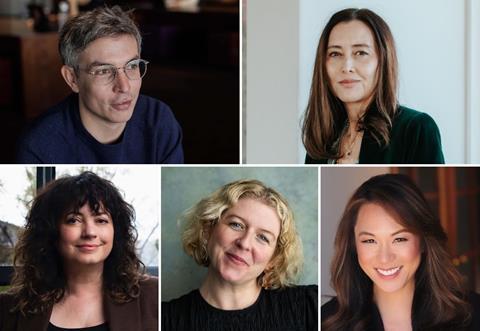
Finding a young Bob Dylan and Joan Baez; casting Russian actors in the midst of a war; finding an actor brave enough to play the world’s most infamous politician; coaching a group of raucous rappers who had never acted before; and assembling a conclave of performers who would all look different in cassocks — these were just some of the challenges of the five films nominated for casting at the Baftas this year.
Since introducing the casting category in 2020, Joker, Rocks, West Side Story, Elvis and The Holdovers have all won the award. Screen International gathers one casting director from each of this year’s five nominated teams to discuss some of the specific challenges of each film, as well as how the art of casting is evolving in the digital era and the challenges they see for actors right now.
The participants joining our virtual round table are: Yesi Ramirez, senior vice president of casting for Walt Disney Studios, nominated for Searchlight Pictures’ A Complete Unknown; Samantha Quan, producer of Anora who also cast the film alongside writer/director/producer Sean Baker; Carmen Cuba, casting director for The Apprentice (nominated alongside Stephanie Gorin) — all three joining from Los Angeles; Kneecap’s Belfast-based casting director Carla Stronge; and London-based Martin Ware, nominated for Conclave alongside Nina Gold.
Screen International: Yesi, A Complete Unknown was set up pre-Covid and had different iterations. Were you working on it the whole time?
Yesi Ramirez: What makes me a little different being in-house is that I was casting the project for five years [outlasting the pandemic, waiting for James Mangold to finish directing Indiana Jones And The Dial Of Destiny, and the actors’ strike]. For some of the roles, I recast five times. For Timothée [Chalamet], he was attached for about six years — he came on through James and the producers at that very early stage.
The Joan Baez character was special to me. In particular, being a Latina woman, and her being half Latina, that was an important element for me. She had to be an amazing singer and a force; she had to feel more confident than Bob’s character. It was important to find someone who had that strength and confidence. Monica Barbaro was someone who I auditioned before Covid; we liked her early on, but she was missing a little bit of the confidence and strength of Joan. She’s someone who the years of [waiting for] the project helped, because then she went into Top Gun: Maverick. A few years later, she had that confidence Joan needed.
Carmen, you also had to cast some very well-known public figures, especially a young Donald Trump. What was your approach?
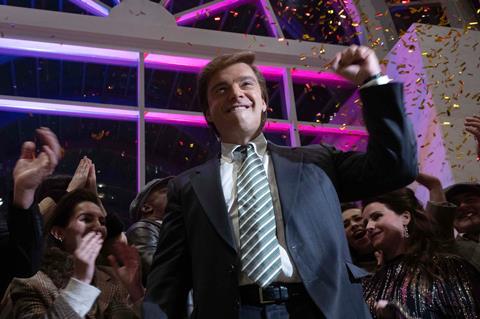
Carmen Cuba: It was 2019 when we started, so we were in the middle of all of it [Trump’s first term]. Ali [Abbasi, director] had done a movie called Border, which had everyone in full prosthetics, so we had tiers of conversations about prosthetics. We also considered women [to play Trump, wearing full prosthetics]. We talked about bias a lot.
Obviously, when casting someone who is an existing person in the world, it’s challenging, but particularly someone as divisive as Donald Trump — it became a very, very big conversation. If you cast a certain way, it tips the filmmaker’s position, or the audience thinks and feels a different way about him.
We interrogated the idea from a lot of different angles. It was very unusual… Sebastian [Stan] is the first person I introduced Ali to in 2019. We lost financing three times. Also some people did not want to play this part. We talked a lot about Americans versus non-Americans, and Sebastian is Romanian. We followed so many different paths, it was magical but also insane.
Samantha, you’re not a traditional casting director, you’re a producer and a longtime collaborator with Sean Baker. Why do you and Sean like to lead the casting yourselves for his films?
Samantha Quan: Sean is very particular about the type of people and the type of faces that he wants to see, and there’s an authenticity that he would like to get — the kind of people we normally see in film and television can sometimes break the fourth wall for him. He wants to see new faces, different faces, things that fit into the world that he’s creating. He just loves the process of it. In our everyday lives, we’re always looking.
For Anora, it’s a particular world, so we look in different areas to get the right faces, the accent that he needs. Because of my acting background, I know how to audition people, even if they aren’t already professional actors, to see what they are capable of in terms of the character and ability.
We’ve had people disappear in the past. They [shoot] for a day, and they’re like, “I don’t want to do this anymore,” and then they just disappear. That’s happened. But luckily Sean’s good at pivoting, and we just figure out what to do.
Did it seem like a gamble casting Mikey Madison, Mark Eydelshteyn and Yura Borisov? Did you ever feel pressure to have bigger names?
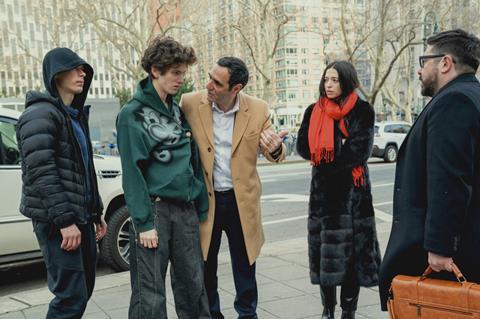
Quan: Being an independent film with smaller financing, clearly the bigger names you use the more money people are willing to give you. So we knew how much we could make the movie for. We loved Mikey and along with Karren Karagulian, they were cast before the full screenplay was written… Yes, it does affect the financing. We couldn’t have gotten a ton of money with no names. That’s just the reality of things, but we were sure she would do a good job and was the right person to be our Anora. Bringing the boys in from Russia was very, very challenging. We were casting right when the war broke out, and there were a lot of ups and downs with that.
Martin, for Conclave, did you have to consider how an audience might picture characters from Robert Harris’s original book?
Martin Ware: Not hugely. The script is quite faithful to the book. Some nationalities were changed, but I think we were pretty faithful to the spirit of it. All the different cardinals come to stand for a different ideology, and so that was always clear. It was just [about] trying to find people to surround Ralph [Fiennes] who were different enough in appearance, because everyone is wearing very similar costumes.
Once we had Ralph, it was quite a big job to figure out the looks of everyone and also the acting styles. There were a lot of big, dramatic two-hander scenes with different characters and we had to make sure people’s styles were going to fit with each other.
Most people in this film didn’t audition, they are established actors who have a body of work, and you have a sense of their work. You have to make decisions in the right order to be able to piece it together.
Carla, was there ever any doubt the band Kneecap were going to play themselves in the film?
Carla Stronge: There was no plan B, and I don’t think there should have been, either. So we just had to get them ready — they’re performers by trade, they have on-stage personas and they step into that role as a band any time they’re in the public eye.
We knew we needed to get them ready to be on set with professional actors who do this every day. And learning set etiquette and how to manage their time and stamina: a gig is maybe three hours long, a shoot day is a lot longer. They got coaching from Kieran Lagan at the Lyric Theatre in Belfast for six months, and even Rich [Peppiatt] the director joined in quite a few of those. Kieran created a very safe space for them all to work on these characters and build their confidence to meet the professional actors. They did leave their egos at the door and get their hands dirty.
For the professional actors, Simone Kirby had worked with Ken Loach and understood that authenticity. Michael [Fassbender] has a real affinity with Northern Ireland after Hunger, and I knew he was very open to working with non-professional actors, because I had worked on the extras for Hunger 17 years ago.
What do you see as some of the challenges of casting right now, especially in the digital era?
Ware: In a world where self-tapes are quite a large part of the industry, it’s difficult for actors to develop relationships with casting people in the kinds of ways we used to. It’s not good for actors and it’s not good for casting directors either; we can lose that personal relationship. We’re trying to find ways to being in the same room again, and seeing the whites of their eyes more often. It’s not only about how good an actor they are — you’re sending a person on a job and you need to understand who they are and if they’ve changed since you were in a room together 10 years ago.
Cuba: I agree. I’ve been seeing people in person again, but also now lots of actors don’t live in LA, so it’s a challenge. I was thinking about Sophie Thatcher, for example. I started to see her when she was 15, in person, and kept seeing her in person. I feel a real connection with her, and I’ve seen how she’s growing up, and when an opportunity like Heretic comes along, I have a much fuller understanding of her than if it was from a self-tape or a Zoom.
Ramirez: That’s also what I miss the most — that intimacy and connection with actors. But also it’s pro and con. It opened us to a world of so many more actors because of the digital age and being able to receive tapes from anywhere, everywhere, any time, which is good because it opens us to more inclusivity.
Stronge: Because I’m not based in London or LA, I couldn’t do my job if it all had to be done in those major cities. So the industry has opened up for me. But it’s a challenge that actors have to do so many tapes and they have to turn them around so quickly.
Another challenge is we find so much new talent for specific projects, and we need to try to keep them in the industry. It can feel like fast fashion in casting, but we need to nurture these actors for decades and ensure a lifetime of work ahead of them.
Can it be hard for talent to commit, especially if things are start-and-stop or get put on hold? Has the TV bubble bursting a bit helped free up talent availability?
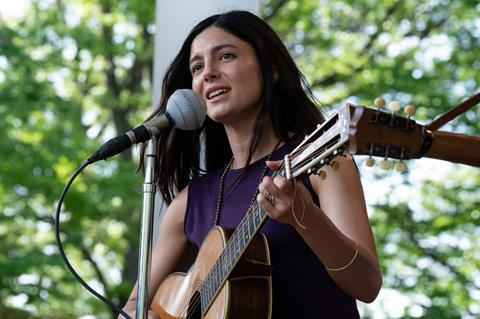
Cuba: Availability is an insane problem that has escalated in the last five years.
Ramirez: Part of why I had to recast so many roles is because we had people that were on series, and they were on hiatus when we were going to film, and then the strike happens, and then there’s a backlog. We had people who we had to move on from because of those date issues… If you’re in a US series, you’re under contract with that studio for multiple seasons. We always have to clear actors through whatever network they’re working for on the show. We need flexibility when we’re filming too, because if it rains or someone gets sick or we need to move the production to a different location, we need that flexibility and you can’t be tied into a bunch of different schedules or conflicts within a cast. That can be challenging and risky for the production.
Where’s talent coming from now? Are you actively looking on places like TikTok, for example?
Cuba: For me, it’s coming from the same places that it has come from in the last five years. I’m not scrolling through TikTok, but sometimes people on TikTok will find their way to me if an agent represents them or if they’ve done an improv show that I paid attention to. I go to a lot of theatre in New York and London. I think we all do similar things to keep track of who’s out there. We try to mine everything. People before they have agents — it’s about how do we see them, how do we find them?
Quan: We use a lot of socials and looking around in real life, especially in the places that we’re working. And then sometimes we do use professional actors too. It just depends on who’s right for it, but socials have been very important to the past few films.
Yesi, how often can a studio take a risk on new talent?
Ramirez: Each project comes with its own challenges and its own mandate. If it’s a project that is very filmmaker-driven, it can be open for discoveries. In a young role, more times than not, we’re able to use discoveries. If it’s an ensemble, we can pop in people who are discoveries and surround them with other talent that’s more recognisable.
What excites each of you about working in casting right now?
Ramirez: I love what I do. I’ve loved it forever. For me, it’s not work, it’s enjoyment. There are stressful work days, obviously, but I just come to work and think I’m lucky.
Stronge: The fact such a regional film [like Kneecap], specific to such a tiny island and in a language that was nearly extinct, can make it onto a stage this big and be nominated for something like this in this company that I’m in, is incredible.
Ware: I love actors and it’s harder than ever to be an actor. If people are deciding to do that with their lives, then the least I can do is help them try and get some jobs.
Quan: It’s been wonderful to watch people who you think would be great, even if nobody has seen them before, and then just watch them shine. Our ensemble in Anora is so special and seeing them getting recognition for all that hard work is wonderful.
Cuba: For me, The Apprentice really speaks to this: I want to be a part of telling complicated, challenging stories. Like Martin, I love actors. Now, post-strike and recovering from the fires, these artists have been trying so hard to make a career and I want to keep it going for them. I feel a real responsibility for that.




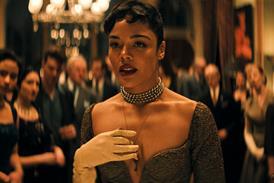
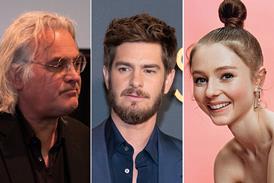
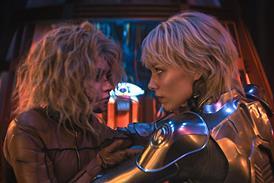
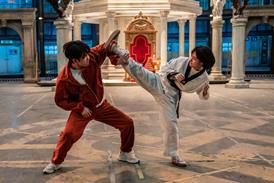




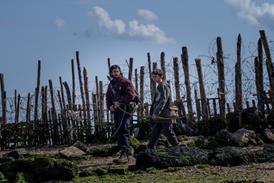
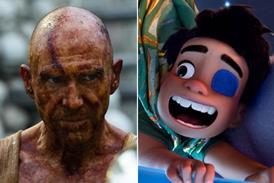
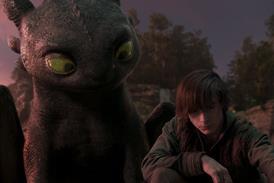










No comments yet